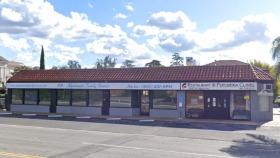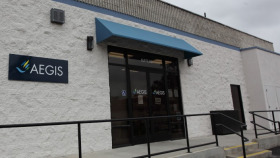Expert Insights
Simi Valley, California saw a slight decrease in opioid-related deaths in 2022, but congressmen state they believe it will continue to get worse before it gets better. Trends show the issue is far greater than a slight decrease in numbers over a one year period. Solutions lie within a reduction of prescribing opioids, the ability to obtain life-saving medications such as Naloxone, and a decrease in illegal distribution of opioids on the streets. Until all angles are addressed, Simi Valley and all of society is at risk for a continual, steady climb in opioid-related deaths.
~ Lesley Wirth
Drug and Alcohol Statistics in Simi Valley
Here are some statistics related to drug and alcohol misuse in Simi Valley and Ventura County:1
23% of teens admitted to using drugs and/or alcohol.
18% of adults reported binge drinking in the past 30 days.
From 2016-2020, 39% of driving deaths were due to alcohol impairment.
How to Pay for Alcohol and Drug Rehab in Simi Valley
Private Insurance
Every insurance provider in the U.S. is required by law to provide at least some coverage for mental health and substance abuse treatment. California residents should contact their provider to confirm specific coverage provided by their carrier, including applicable copays.
Medi-Cal
Medi-Cal is California’s Medicaid program. Funded by federal and state taxes, this program pays for medical services for children and adults who have limited income. To qualify for Medi-Cal, California residents must meet income requirements and be one of the following: pregnant, responsible for a child under 21 years old, blind, disabled or a disabled family member, or 65 years or older.
California Medicare
California Medicare is a government program providing coverage to residents who are over the age of 65 or who have end-stage renal disease. California residents can use Medicare to cover the cost of rehab and other addiction treatment services; however, not all Simi Valley drug rehabs accept Medicare insurance.
Sliding Scale Rehabs
Sliding scale facilities charge what California residents can afford, based on their income. To qualify, residents typically need to provide proof of income and assets.
TRICARE in California
California TRICARE (West Region) is a government program that provides health insurance for military personnel, veterans, and their dependents. TRICARE coverage includes addiction treatment services, such as rehab and medication-assisted treatment.
State-Funded and Free Rehab in Simi Valley, CA
For California residents who can’t afford treatment, state-funded and free services may be available. These programs use government funding to pay for the treatment. To qualify, residents may be required to provide proof of income.
Sliding Scale Rehabs
Sliding scale programs offer income-based fees, meaning they charge only what a California resident can reasonably afford to pay. To qualify for a sliding scale rehab in Simi Valley, residents typically are required to show proof of income.
IHS-Funded Drug Rehabs
Drug rehab programs funded by the Indian Health Service provide free addiction treatment to Alaskan Natives and Indigenous people in the U.S.
Levels of Substance Abuse Care
Multiple levels of care exist for addiction treatment. Some California residents require all levels of care during their journey to recovery, while others receive only the less intensive options.
Medical Detox
Detox is the process of removing drugs or alcohol from your system, safely and comfortably, in a supervised medical setting. Many people choose a medical detox program to prevent severe withdrawal symptoms. This is often the first step in the treatment process, completed before transitioning into formal treatment services.
Inpatient Drug and Alcohol Rehab
Inpatient or residential treatment involves living at a rehab facility to receive 24/7 care. A combination of treatment interventions is provided, including individual and group therapy, nutritional counseling, and medication.
Partial hospitalization programs (PHPs): PHPs allow California residents to live at home while attending treatment at a hospital. They often receive many of the same treatment as inpatient care, but can return home during non-treatment hours.
Intensive Outpatient Programs (IOPs): A step down from a PHP, IOPs allow California residents to attend counseling several days each week while spending the rest of their time at home, working, or fulfilling other obligations.
Standard Outpatient: As the least intensive treatment option, standard outpatient care is appropriate for California residents who are highly motivated and have a strong support system. It involves just one or two hours of treatment per week.
Relapse Prevention
Aftercare, or relapse prevention, provides ongoing support after a rehab program is complete. Aftercare may include 12-step groups, non-12-step groups like SMART Recovery, ongoing therapy, sober living homes, and more.
California Alcohol and Drug Laws
California laws include the following policies regarding substance abuse:1,2,3,4,5
California Employee Protections for Drug or Alcohol Rehab: California’s labor code requires employers with 25 or more employees to provide accommodation to staff who voluntarily choose to attend alcohol or drug rehab. This may include unpaid time off or use of sick or vacation time.
Substance Abuse and Crime Prevention Act: This act provides treatment opportunities for individuals who are convicted of non-violent crimes. Eligible offenders may serve their time in drug treatment rather than in prison.
California Government Prevention and Care Services: Senate Bill 110 expanded these services to include contingency management (an incentivized treatment program) as a benefit covered under Medi-Cal.
California Ethical Treatment for Persons with Substance Use Disorder Act: This protects drug addiction treatment clients by requiring treatment providers to adopt a client bill of rights, to ensure all individuals receiving addiction care are treated with dignity, honesty, and respect.
California’s Good Samaritan Law: This law encourages California residents to call 9-1-1 if an overdose is suspected. It protects individuals who seek emergency medical care for overdose from legal repercussions for possession of a controlled substance/drug paraphernalia or providing alcohol to minors.
Resources
- Conduent Healthy Communities Institute.(2022). Health Matters in Ventura County.
- Center for Medicare Advocacy. (2022). Medicare Coverage of Mental Health and Substance Abuse Services.
- Centered for Medicare and Medicaid Services. (2022). Substance Use Disorders.
- Office of Governor Gavin Newsome. (2022). California Expands Medi-Cal to All Eligible Adults 50 Years of Age and Older.


















